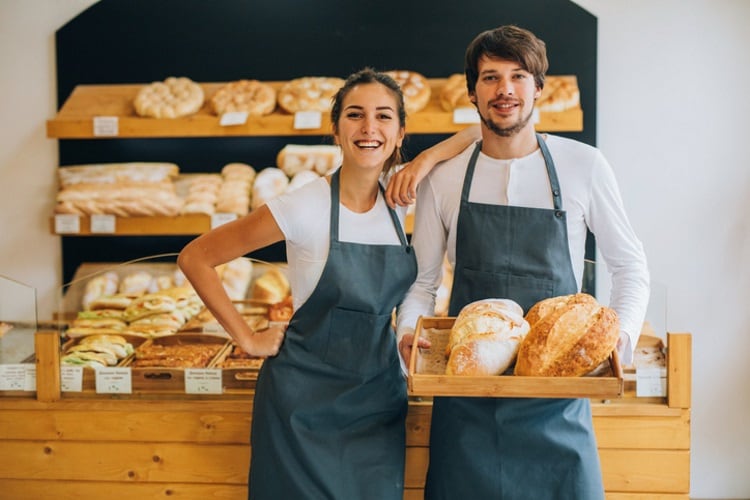According to Sustaining small bakery businesses: Looking to the future in challenging times, more than 90% of bakery businesses in the UK today have 50 employees or fewer; 58% of microbusinesses (10 people or fewer); 30% of owners describe their business as a family firm, owned and run by multiple generations; while 23% are sole traders.
- In 2021, there were 2,720 businesses making bread, fresh pastry goods and cakes in the UK
- Of these, 2,540 were small businesses (with 50 employees or fewer) – up from 1,874 in 2008 and 2,478 in 2019
- More than a third of small bakery businesses that participated in the study are less than five years old, with 17% having been founded since the start of 2020
Demand for the real deal
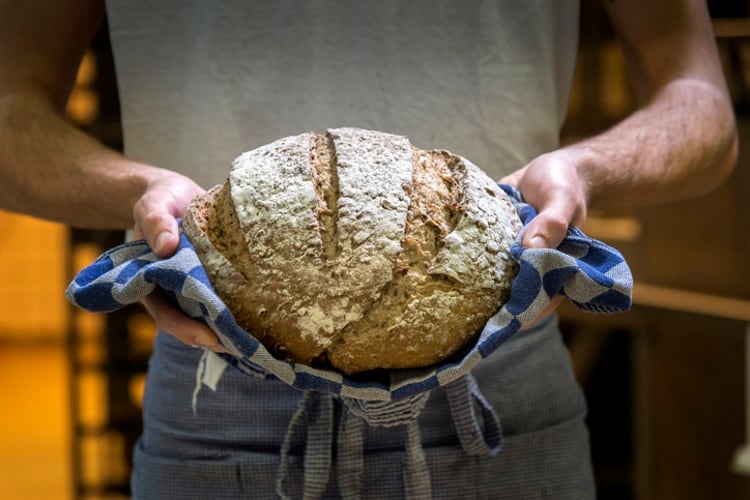
The sector is on the rise, driven by consumer demand for bread made on a smaller scale using hand-crafted methods. Almost half of the UK population eat bread daily, with around 2.5 million people regularly buying from local bakeries, making these businesses a critical part of the country’s economy. In fact, according to the report, the estimated retail value of bread categorised as ‘artisanal’ rose from £600m in 2005 to £700m in 2015 (versus the overall decline in the retail sales of packaged bread from £2,650m to £2,500m).
The OU report is based on a survey of 202 small bakery business owners in the UK between May and July 2022 and other research, with support from the Real Bread Campaign and Craft Bakers Association.
- For 62%, retail sales represent the majority of their activity
- 42% have an annual turnover under £200,000, while 31% have an annual turnover less than £85,000
“These businesses provide an important source of innovation and new ideas,” writes lead author Emma Bell, professor of Organisation and Leadership at the OU Business School.
“Many owners have responded to changing customer demands, including for sourdough, organic and additive-free baking. Some are exploring ways of making bread more sustainably, by supporting local wheat farming and flour milling that uses innovative methods.”
The big squeeze

However, while they showed great resilience in the face of the pandemic, like many other small businesses, the craft sector is facing a barrage of challenges.
Prof Bell said, when questioned, the top three threats among owners related to rising prices, coined by one baker as ‘the big squeeze’.
Bakeries are energy-intensive, are vulnerable to global price spikes of flour, sunflower and other ingredients and often have to fork out high rents and business costs. Cost of living pressures on consumers are also putting a dampener on their sales – a situation that has likely intensified further in the few months since this research was carried out.
A further widespread challenge faced concerned the ongoing skilled labour challenge. “While business owners are willing to train bakers ‘on the job,”, writes Prof Bell, “they face significant recruitment problems related to an ageing workforce and limited provision of training pathways for young bakers … [along with the difficulty] in keeping employees once they had trained them.”
Longer hours and lower pay than other skilled jobs are the main culprits for this.
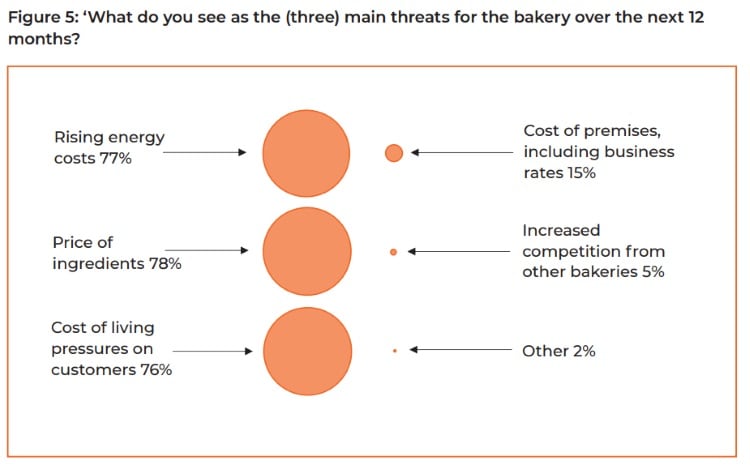
Despite the challenges, the majority of bakers are confident of their ability to weather the storm and survive.
“Small bakeries enrich our food culture by using craft skills to make bread in local, traditional and sustainable ways,” said Prof Bell.
“In recent years, consumer demand for these artisanal products has increased and the number of small bakery businesses has grown. Now, in the face of soaring costs and a shortage of skilled bakers, we need to find ways to support these innovative small businesses and make sure they continue to survive and thrive.”
Barriers to earning an honest crust
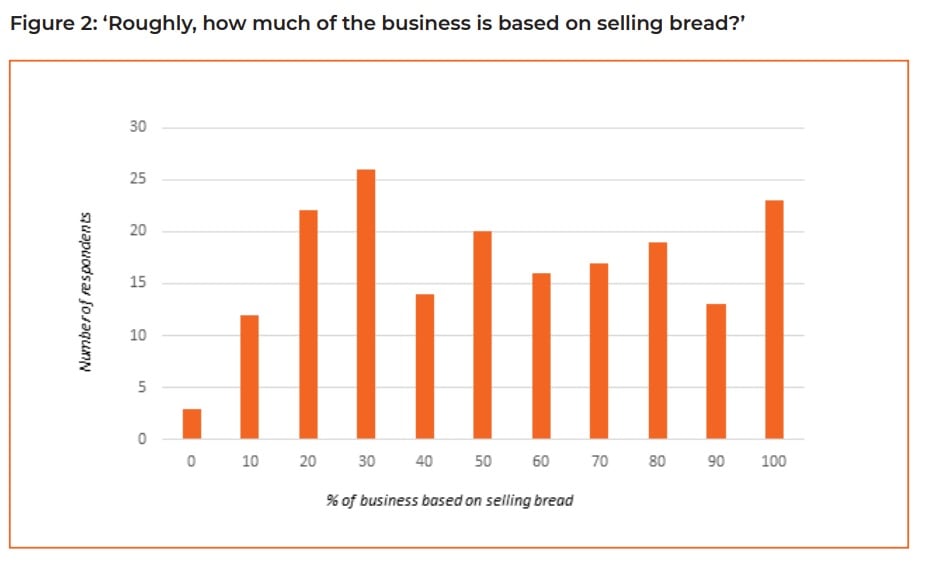
Drilling down further, a number of bakers are concerned about the lack of regulation of bread labelling and marketing. In fact, one baker quoted in the report said the way manufacturers and retailers are allowed to use artisan, local, stoneground, hand-shaped, sourdough and similar means “these terms become meaningless”.
This, according to Real Bread Campaign coordinator Chris Young, is contributing to the difficulty some small bakers are experiencing in explaining to customers the ways in which their breads are fundamentally different to – and priced higher than – those of large retailers.
- 45% of bakeries over 25 years old use additives, while only 4% of those under 10 years old do
- Bakeries with a turnover below £500k are significantly more likely to make genuine sourdough bread than those with a smaller turnover
“This report gives an insightful snapshot of the state of micro and other small bakeries in the UK,” said Young.
“While the Real Bread movement remains vibrant, the findings highlight the plight that many small businesses face and underline the need for the support that the Real Bread Campaign has urged the government to provide.”
Bakery and bread for all
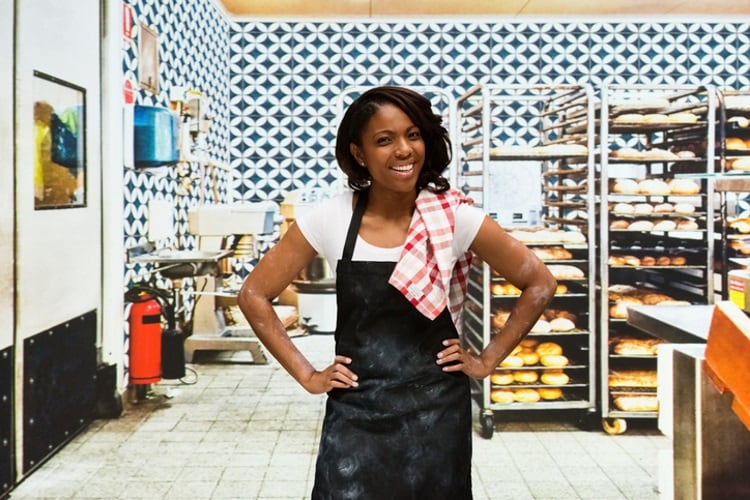
Another challenge to emerge was the lack of diversity in small bakery business ownership, while there is a common desire to make products more accessible to people of diverse backgrounds and lower incomes.
- 52% of small bakery owners identify as men and 44% as women
- 72% of sole traders are women; 27% of businesses that employ 11-20 or 21-50 people are owned by women; all the businesses employing 50+ employees in are owned by men
In conclusion, the report suggests that bakery owners work together with policy makers, educators and suppliers to build more resilient supply chains, improve training and career pathways for bakers and enhance customer awareness about the benefits of locally-made, fresh bread and bakery products.
The Open University (OU) was founded in 1969, growing into the largest academic institution in the UK and a world leader in flexible distance learning, teaching more than 2.2 million students worldwide. The OU’s commitment to research and societal impact is also internationally acclaimed.
The Craft Bakers Association (CBA) has been the voice of the sector since 1887, representing around 500 bakery businesses in England, Wales and Northern Ireland, which together support 3,000 shops on the high street, alongside wholesale companies and specialised confectionery businesses.
The Real Bread Campaign was co-founded in November 2008 by Andrew Whitley of Bread Matters, and Sustain, the food and farming charity that runs it. The Campaign works towards a future in which everyone has the chance to choose Real Bread – made without chemical raising agents, so-called processing aids or any other additives – that can be accessed within walking or cycling distance.
Study:
Sustaining Small Bakery Businesses: Looking to the future in challenging times
Author: Bell, E
2002. Milton Keynes: The Open University. ISBN: 978-1-4730-3777-9


